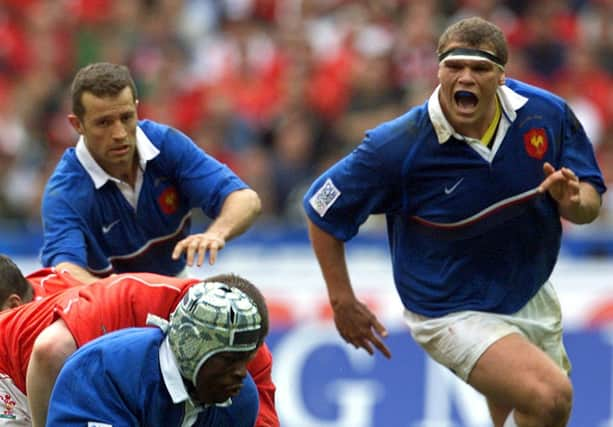Scots call on De Villiers’ French connection for clash with Galthie’s men


Not only did the former tighthead prop win nearly 70 caps for France, he played in the same team as Fabien Galthie, now the head coach, and Raphael Ibanez, the team manager. Throw in the fact that he has recently coached Stade Francais, and it should become clear that De Villiers, who became Scotland’s scrum coach at the turn of the year, has a vital role to play in the build-up to Sunday’s Six Nations match at Murrayfield.
“I have a little bit of an insight into how the French play,” the South-African-born 47-year-old said. “With the French you need to do well up front at the set piece and in terms of the physicality, and once you get that done you’re in the game. But if you don’t do well there, then it’s going to be a long day at the office. That’s especially the case against this French team, who have taken to those traditional values.
Advertisement
Hide AdAdvertisement
Hide Ad“Since the World Cup I think a lot of teams have been thinking about the way South Africa won with a specific type of game plan. In the past the French have been successful with a physical approach and a strong defensive part to their game, and I think that Fabien took the lessons out of the World Cup and has changed the classical way of playing French rugby.”
De Villiers has seen France acquire a more solid structure to their game under Galthie, but believes it has not come at the expense of their instinctive attacking approach. “Fabien is an all-round coach and he’s particularly good at attack, but after the World Cup there’s been a greater stress on defence and physicality,” he explained. “They’ve certainly changed their approach a bit to become a bit less predictable and give less turnovers. So we’ll have to front up to that, but Scotland have also proved to be very physical and to have a good set piece, so I think it will be a very good battle. I think the France players are all natural, flair-type players who can finish off opportunities, but they’ve definitely gone back to a bit more of a physical approach with a good kicking game and good defence. That makes them a more dangerous side, because they’ve definitely got powerful players.”
De Villiers’ current contract is just for the duration of the Championship, but if he were offered an extension, he seems sure to accept. “I’m enjoying it a lot – from my side I’d definitely be happy to continue,” he said. “But those are things for later – the job now is to scrum well on Sunday.”
So far at least, that job is going well. But De Villiers has no wish to claim all of the credit for the improvement in the set piece that was obvious from the Ireland match, his first since joining the coaching team, preferring to praise the players’ willingness to learn. “It’s been fantastic working with this group,” he continued. “The players I’ve walked in on are top-end players whose work on and off the field is excellent, whose work ethic is outstanding. I think that’s the reason why we progressed so quickly, because the base was very solid. It’s been a real privilege to work with these guys.
“It’s probably the group that has responded the quickest ever. Knowing the players now, it isn’t a surprise, because I see how much they work on and off the field and how disciplined they are in terms of putting in the effort. But yes, we got some quick results in certain departments which also speaks to what has gone before, because when I went to Edinburgh and to Glasgow I could see that there was a lot of work ethic there.
“So it was a matter of a few changes here and there, a few suggestions. A bit of endurance work in certain areas helped, but I thought the base was very solid and that’s why they reacted quickly.”
The respect and appreciation is reciprocated by the players, as Fraser Brown explained. “The way Pieter has come in has been brilliant – he’s been welcomed by everyone, he’s got a great personality in the group, he gets on well with everyone,” the hooker said. “The detail and the passion that he brings to that area of the game has been taken on board by everyone and you can see the improvements we’ve had already in such a short period of time.
“It’s not easy, whether it’s scrum, defence, whatever, to make big changes in such a short window like the Six Nations is, particularly when you’ve got a lot of new guys coming into the squad. And I think that’s testament to how well he’s fitted in.”